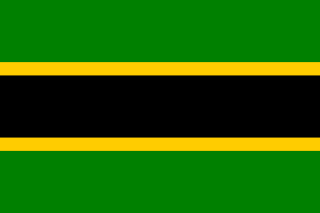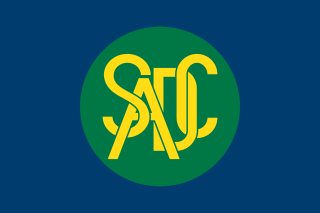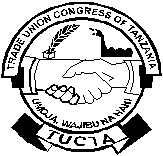
Dar es-Salaam is the largest city and former capital of Tanzania. It is the largest city in East Africa and the seventh-largest in Africa, with a projected population of 5,275,315 in 2019. On the Swahili coast, Dar es-Salaam is an important economic centre and one of the fastest growing cities in the world.

Tanzania, officially the United Republic of Tanzania, is a country in East Africa within the African Great Lakes region. It borders Uganda to the north; Kenya to the northeast; Comoro Islands and the Indian Ocean to the east; Mozambique and Malawi to the south; Zambia to the southwest; and Rwanda, Burundi, and the Democratic Republic of the Congo to the west. Mount Kilimanjaro, Africa's highest mountain, is in northeastern Tanzania.
The African Great Lakes nation of Tanzania dates formally from 1964, when it was formed out of the union of the much larger mainland territory of Tanganyika and the coastal archipelago of Zanzibar. The former was a colony and part of German East Africa from the 1880s to 1919’s when, under the League of Nations, it became a British mandate. It served as a British military outpost during World War II, providing financial help, munitions, and soldiers. In 1947, Tanganyika became a United Nations Trust Territory under British administration, a status it kept until its independence in 1961. The island of Zanzibar thrived as a trading hub, successively controlled by the Portuguese, the Sultanate of Oman, and then as a British protectorate by the end of the nineteenth century.

Zanzibar is a semi-autonomous region of Tanzania. It is composed of the Zanzibar Archipelago in the Indian Ocean, 25–50 kilometres (16–31 mi) off the coast of the mainland, and consists of many small islands and two large ones: Unguja and Pemba Island. The capital is Zanzibar City, located on the island of Unguja. Its historic centre is Stone Town, a World Heritage Site.

Tanganyika was a sovereign state, comprising the mainland part of present-day Tanzania, that existed from 1961 until 1964. It first gained independence from the United Kingdom on 9 December 1961 as a state headed by Queen Elizabeth II before becoming a republic within the Commonwealth of Nations a year later. After signing the Articles of Union on 22 April 1964 and passing an Act of Union on 25 April, Tanganyika officially joined with the People's Republic of Zanzibar and Pemba to form the United Republic of Tanganyika and Zanzibar on Union Day, 26 April 1964. The new state changed its name to the United Republic of Tanzania within a year.

East Africa or Eastern Africa is the eastern subregion of the African continent, variably defined by geography. In the United Nations Statistics Division scheme of geographic regions, 20 territories make up Eastern Africa:

Tanga is both the name of the most northerly port city of Tanzania on the west of the Indian Ocean, and the surrounding Tanga Region. It is the regional headquarters of the region. With a population of 273,332 in 2012, Tanga is one of the largest cities in the country. It is a quiet city compared to, for example, Arusha or Moshi with a comparable number of inhabitants. The name Tanga reportedly means "sail."
A national trade union center is a federation or confederation of trade unions in a single country. Nearly every country in the world has a national trade union center, and many have more than one. When there is more than one national center, it is often because of ideological differences—in some cases long-standing historic differences. In some regions, such as the Nordic countries, different centers exist on a sectoral basis, for example for blue collar workers and professionals.

The Southern African Development Community (SADC) is an inter-governmental organization headquartered in Gaborone, Botswana. Its goal is to further socio-economic cooperation and integration as well as political and security cooperation among 16 southern African countries.

The East African Community (EAC) is an intergovernmental organisation composed of six countries in the African Great Lakes region in eastern Africa: Burundi, Kenya, Rwanda, South Sudan, Tanzania, and Uganda. Paul Kagame, the president of Rwanda, is the EAC's chairman. The organisation was founded in 1967, collapsed in 1977, and was revived on 7 July 2000. In 2008, after negotiations with the Southern African Development Community (SADC) and the Common Market for Eastern and Southern Africa (COMESA), the EAC agreed to an expanded free trade area including the member states of all three organizations. The EAC is an integral part of the African Economic Community. The capital of the EAC is Arusha, while the most populous city is Dar es Salaam, both of which are in Tanzania.
The individual member states of the African Union (AU) coordinate foreign policy through this agency, in addition to conducting their own international relations on a state-by-state basis. The AU represents the interests of African peoples at large in intergovernmental organizations (IGO's); for instance, it is a permanent observer at the United Nations' General Assembly.

Mark James Mwandosya is a Tanzanian CCM retired politician and a former Member of Parliament for Rungwe East constituency.
The trade unions of Tanzania have a total membership of approximately 370,000. 350,000 of these belong to the Trade Union Congress of Tanzania, another 15,000 to the Zanzibar Trade Union Congress, and 2,400 are members of the Tanzania Fishing Crew and Allied Workers’ Union.
Msondo Ngoma is an influential and long-lived Tanzanian muziki wa dansi band. Having been established in 1964, it is the oldest active dansi band in Tanzania.

A Ministry of Trade and Industry, Ministry of Commerce, Ministry of Commerce and Industry or variations is a ministry that is concerned with a nation's trade, industry and commerce.

Kassim Majaliwa Majaliwa is a Tanzanian politician who has been Prime Minister of Tanzania since 2015. He was appointed by President John Magufuli after the 2015 general election. He is a member of the ruling Chama Cha Mapinduzi party and has been a Member of Parliament for Ruangwa constituency since 2010.

Poland–Tanzania relations refers to the diplomatic relations between the Republic of Poland and the United Republic of Tanzania. Both nations are members of the United Nations and the World Trade Organization.
The Tanzania Teachers’ Union (TTU) is a teachers' trade union in Tanzania.

Tanzania–Turkey relations are the foreign relations between Tanzania and Turkey. The Turkish embassy in Dar es Salaam first opened in 1979, although the Ottoman Empire had previously opened a consulate in Zanzibar, now a part of Tanzania, on March 17, 1837.













